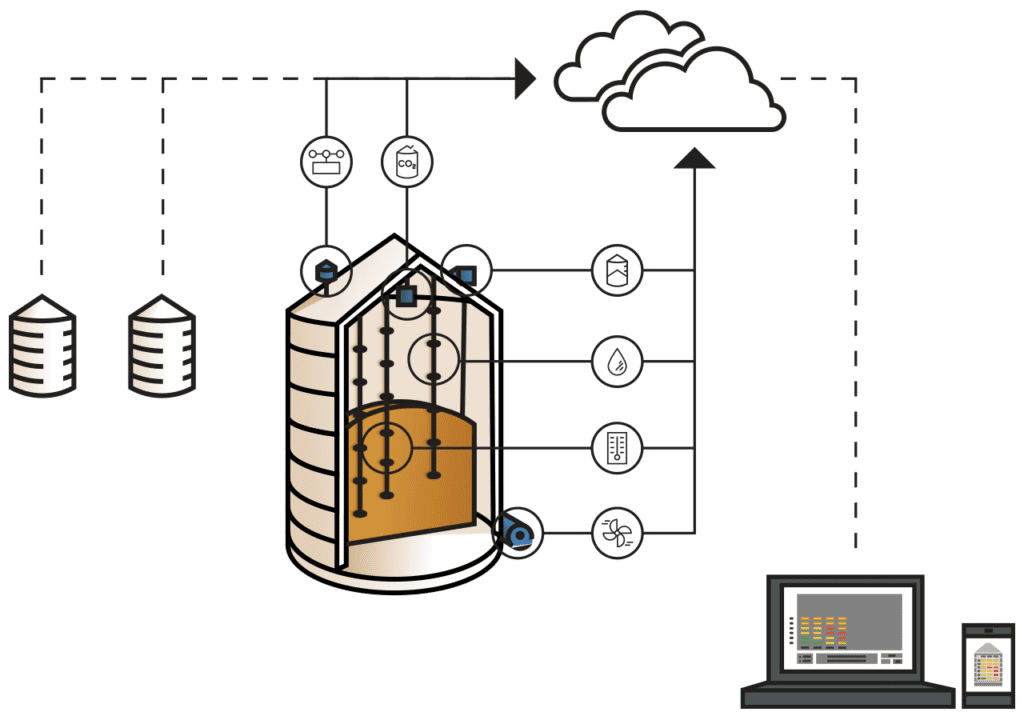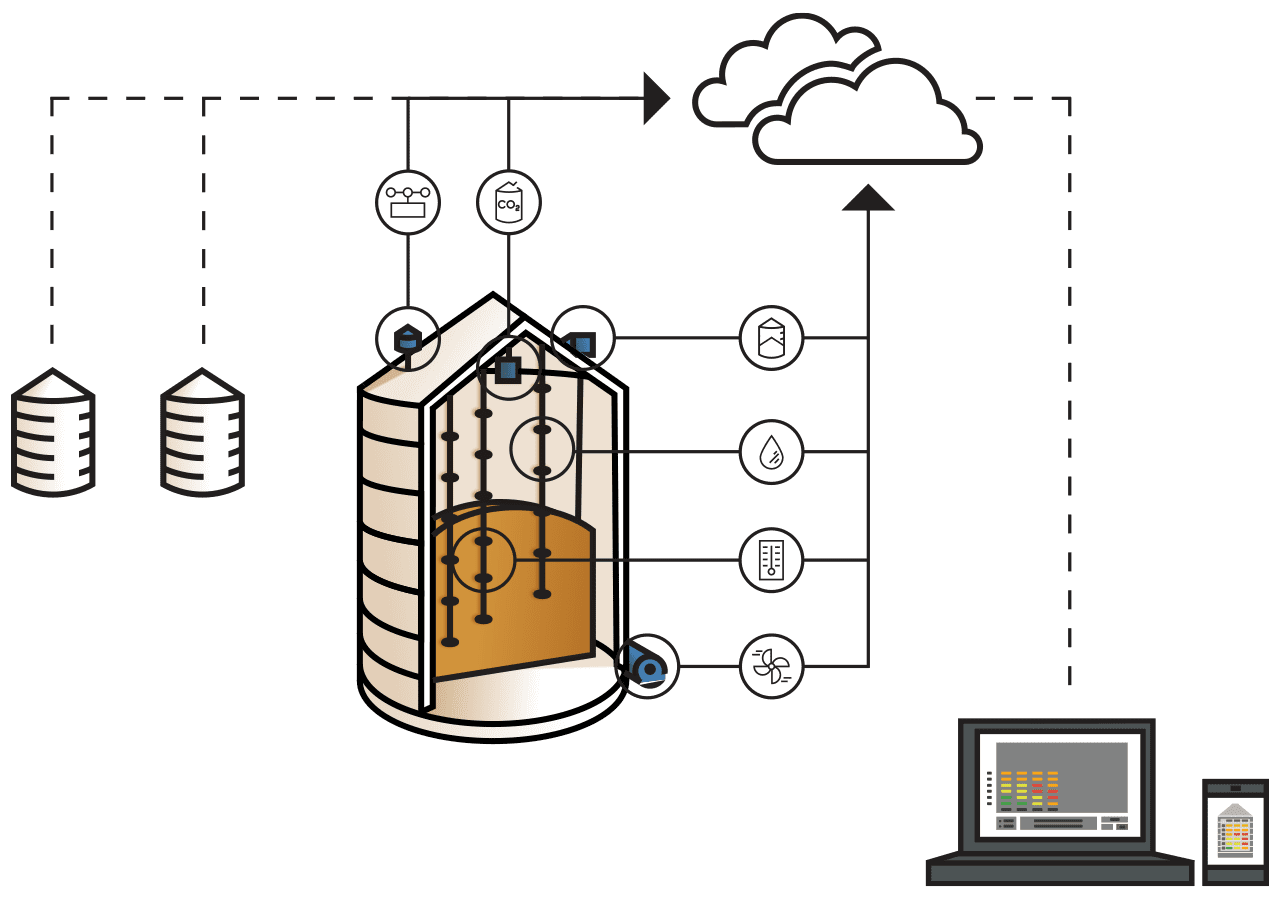The Midwest is already well-known for having impressive grain producers. Superior production is the norm around these parts. The real separation between farmers who are prospering and farmers who are just getting by comes down to operation management. At least, that’s how Jim Knuth, the senior vice president of Farm Credit sees it.
As the largest agriculture lender of the Northern Midwest, we must assume he might know a thing or two. Looking over his lender portfolio for the past five years, he discovered some key components causing this separation. Here are the top findings that he delivered in his speech at an Iowa Farm Bureau’s Economic Summit. They’re just as relevant today.
1. Strong Producers Know How to Cultivate Strong Financial Intelligence
Farmers need to be well versed in their finances so they can make quick decisions when needed. To accomplish this, they need to keep meticulous records and a complete understanding of their farm’s financials. Producers need to be good with their numbers. They need to know their costs and their breakeven. They don’t guess, they know their numbers and use them to make the best business decisions.
2. Savvy Farmers Use Operation Analysis
A strong financial intelligence helps farmers complete this next vital component – operation analysis. Great farmers know how the different parts of their farms function best together. They use their meticulous financial records to perform a comprehensive enterprise analysis.
Producers who have multiple operations under one farm should be tracking them all separately. For example, if a farmer’s business includes hog buildings, cattle feeding, and grain production, they should know which aspect makes the most money. They should also know which one makes the least money and if any are losing money. This is how producers know when to make important adjustments to their business.
3. Superior Producers Look for Additional Income Sources
For farmers who have yet to diversify their operations, it may be time to take a closer look. There is nothing worse than leaving money on the table. Skilled producers don’t allow their income streams to idle; they diversify. This can be done by acquiring more custom acres or expanding with livestock. Even an off-farm job as some form of a consultant is an excellent way to generate new income for the business. There are tons of unique ways a farmer can create new income streams.
4. Sensible Farmers Know Their Cost of Living
Great producers are familiar with their cost of living. They understand that what they can or cannot afford will change in different margin, profit, and price markets. Because they know these amounts, they can make adjustments when they are needed.
5. Grain Producers Understand the Art of Negotiation
A key component to successful farming is a producer’s ability to negotiate. This is especially true when looking at cash rents. Building and maintaining good relationships with landlords is essential. The power of negotiation in this area of farm operations comes from having several revenue-based conversations. Knuth recommends farmers stay proactive when discussing cash rent.
6. Farmers Know When to Get Rid of Nonperforming or Underperforming Assets
Successful farmers know that noting on the farm receives a lifetime guarantee. Meaning, when assets are nonperforming or underperforming, they get sold before they have the chance to bleed into the profitable aspects of the operation. There are no exceptions.
7. Smart Grain Producers Know How to Maximize Profits Not Just Yields
Farmers need to make sure they are getting the full return on their investment. Meaning they need to make sure each acre is being optimized to its fullest potential. Grain producers can plant the most expensive seed and throw everything on it except the kitchen sink driving their variable costs through the roof maximizing yields, but they might not be maximizing profit.
On the flip side, grain producers can minimize their costs, drag down their yields, and most likely see a diminished return. Neither scenario is ideal. It’s essential that farmers find the sweet spot where each acre is working for them maximizing yields and profits simultaneously.
8. Successful Producers Focus on Getting Better, Not Just Bigger
Often producers focus on expanding the size of their operation overlooking the more important step of getting better. But as Knuth reminds farmers “bigger is not a solution in and of itself.” Farmers must first make sure they are finding their weak areas and work to strengthen them. Expanding before the operation is ready will likely only compound the problem areas.
9. The Best Grain Producers Understand the Financial Effects of Their Decisions
In agriculture, business decisions are made daily, weekly, monthly, and yearly. One decision could limit a grain producer’s future options, alternatively, that same decision could open doors to new possibilities. Understanding how your decisions and future goals intersect is extremely important to the success of a farm operation.
To help guide producers in the right direction Knuth provides an example of what they should be asking themselves.
“If I am going to buy a new piece of equipment, should I pay cash for that and take that cash out of my working capital? Do I still have adequate working capital for my operation, or am I better off financing that piece of equipment over several years and retaining my working capital?”
The Bottom Line
Successful farmers understand all aspects of their farming operations. They make decisions based on numerical data and utilize precision farming techniques. These producers know when to adjust their farming practices to increase profits and maximize yields. They utilize out-of-the-box thinking to increase farm profits and focus on getting better before getting bigger.
We’ve helped grain producers make the most of their stored grain assets across the nation and in over 40 countries. One of our grain storage experts would be happy to see how we can help you too.
Ask us about options here, live chat with us here, or call us at 1 800 438 8367.
Follow us on Facebook where we discuss a variety of farming topics, including successful habits for grain farmers, grain temperature monitoring and Smart Farming.



